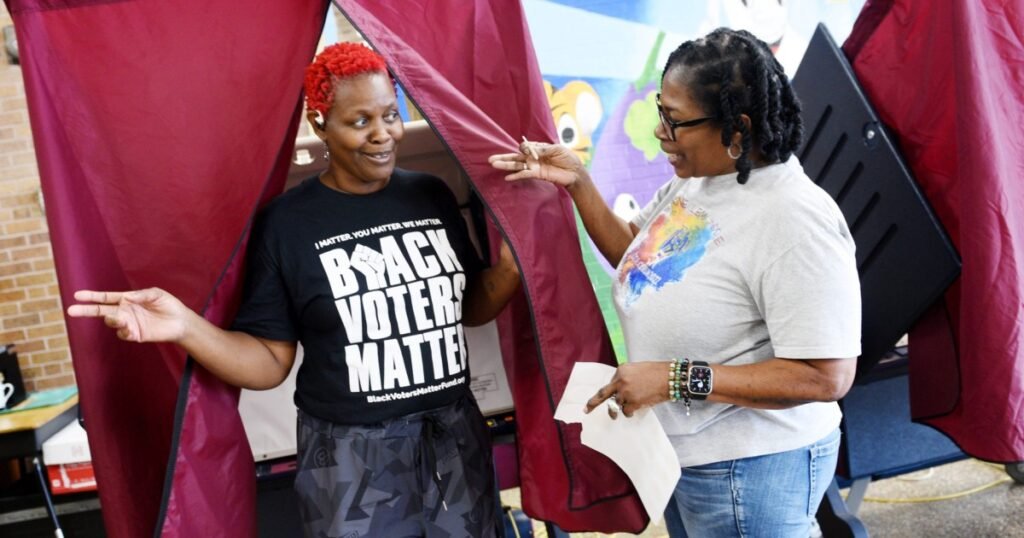Supreme Court Considers Key Provision of Voting Rights Act in Louisiana Redistricting Case
Introduction
The ongoing case regarding congressional redistricting in Louisiana represents a pivotal moment for the landmark Voting Rights Act of 1965. On Wednesday, the conservative majority of the Supreme Court deliberated whether a crucial component of this historic law, designed to protect minority voters against racial discrimination, should be significantly weakened.
Background of the Case
At the heart of this dispute is a congressional map Louisiana was mandated to redraw after facing legal challenges under the Voting Rights Act. The original map featured only one majority-Black district, despite Black residents constituting roughly one-third of the state’s population. Advocates argued that Louisiana must create at least two majority-Black districts to comply with Section 2 of the Voting Rights Act.
Expansion of Legal Questions
Initially, the Supreme Court approached the case with a narrower focus. However, in a rare move, the Court instructed both sides to reargue their positions, expanding the legal questions to include a broader constitutional issue. The justices are now considering whether efforts to create majority-Black districts infringe upon the rights enshrined in the Constitution’s 14th and 15th Amendments, which were established post-Civil War to grant equal rights to former slaves, including voting rights.
Constitutional Considerations
Conservative justices contend that both the 14th and 15th Amendments strictly prohibit any consideration of race in redistricting decisions. This “colorblind” approach has gained traction in recent rulings, such as the Supreme Court’s 2023 decision that concluded race could no longer be a factor in college admissions.
Shifting Positions in the Case
Interestingly, Louisiana, which initially defended its new congressional map, has reversed its stance. The state has now aligned with a group of non-African-American voters who are challenging the map on constitutional grounds. The alignment with these voters has drawn support from the Trump administration, emphasizing the political complexities surrounding the case.
Civil Rights Groups and the Defense of the Map
On the opposing side, civil rights organizations are advocating for the majority-Black districts, arguing that such representation is essential for equitable governance. This ongoing battle showcases the tension between voter representation and interpretations of constitutional rights.
Historical Context and Previous Rulings
The Voting Rights Act has faced persistent legal challenges from conservative factions, and the Supreme Court has systematically weakened it in significant rulings from 2013 and 2021. However, in a surprising turn, the Court reaffirmed two years ago that racial considerations are necessary in redistricting in a different case concerning an Alabama congressional map. This ruling, decided by a narrow 5-4 margin, featured support from two conservative justices—Chief Justice John Roberts and Justice Brett Kavanaugh—highlighting the complexities within the Court itself.
Implications of a Potential Ruling
Should the Supreme Court rule broadly in favor of Louisiana, states may find themselves less required to create legislative districts that are predominantly composed of minority populations. This change could lead to a decrease in minority representation in Congressional and state legislative bodies, significantly impacting political dynamics.
Timing and Future Elections
A swift ruling could provide Louisiana and other states with the opportunity to redraw legislative districts ahead of the critical 2026 midterm elections. Given that Black voters predominantly lean Democratic, a shift in districting strategies may favor Republican candidates, altering the electoral landscape.
Conclusion
The deliberations surrounding the Louisiana redistricting case underscore the ongoing national conversation regarding race, representation, and constitutional rights. As the Supreme Court weighs its decision, the implications will extend far beyond Louisiana, influencing electoral practices and minority representation across the United States.
For more insights into the evolving landscape of voting rights and electoral laws, please refer to NBC News’ coverage on this critical subject.


